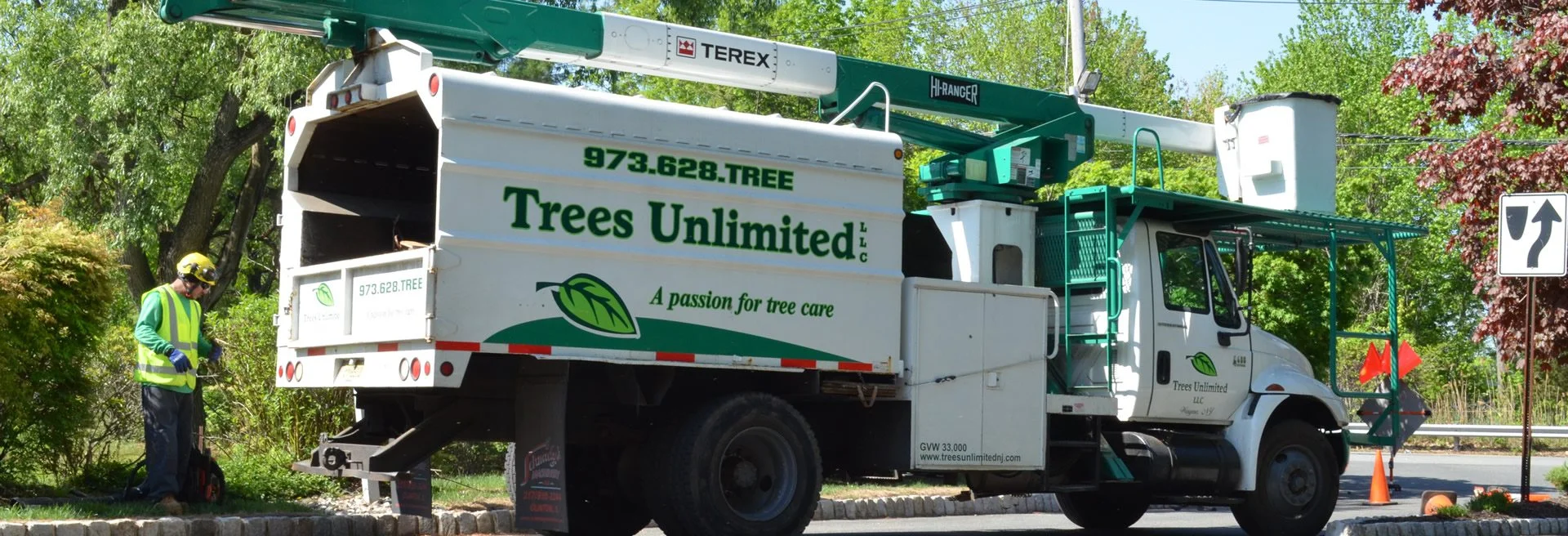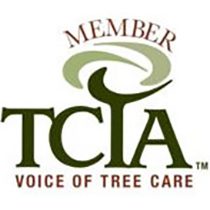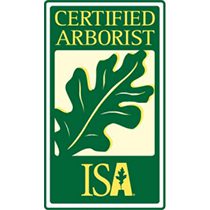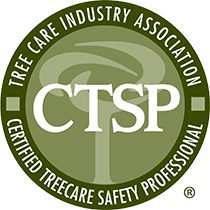Serving Passaic, Essex, and parts of Bergen, Hudson, Union and Morris Counties

Tree Care Services in Wayne NJ
Serving Passaic, Essex, and parts of Bergen, Hudson, Union and Morris Counties
Licensed, Bonded, and Insured
NJ LIC #13VH053339900 | NJ BOARD OF TREE EXPERTS REG #NJTC76887
Professional Tree Care Services We Offer

Tree Removal
Professional tree removal service by licensed, experienced, highly trained, and skilled tree climbers and ground crews.

Stump Removal
Our stump grinding machines remove the stump below the soil line leaving the area properly prepared for top soil and seed.

Tree & Shrub Care
Tree and shrub care using targeted disease treatment and pest control methods that actually work. Our treatment approach can restore your trees and shrubs to vibrant health.

Tree Pruning & Trimming
We assess the natural structure of your tree, its age and species to determine how to properly prune to ensure its health and aesthetics.

Pest Management
Enviornmentally sound and proven solutions that protect your property while preserving beneficial insects and pollinators. Licensed and insured specialists with a science-based approach.

Tree Diseases
Licensed, Bonded, and Insured team combines decades of field experience with advanced science-based treatments. State-of-the-art technology to save and protect your trees.

Cabling & Bracing
Trees with a structural defect or condition that poses a high risk of failure can often be saved with a supplemental support system.

Residential
Residential tree care services to help maintain beautiful, healthy trees and shrubs, maximize the value of your property, and to improve curb appeal.

HOA Tree Services
Expert HOA tree care to protect your community's trees - inspections, pruning, pest control, and risk management to enhance safety, curb appeal, and budget predictability year-round.

Commercial
HOAs, apartment complexes, offices, schools, and golf courses trust us to care for their property and natural resources.

Municipal
We understand the needs of our municipal clients and provide solutions to protect their green investments while ensuring the safety and quality of life for a community’s citizens.

Subcontracted
We serve as a complete resource for leading construction firms and general contractors, making their needs a priority to ensure their project runs smoothly.
We Treat Your Property Like Our Own!
Your Safety Is Our Priority –
Local Tree Care Services You Can Trust!
Local Certified Arborists
Since 2005, Trees Unlimited has been providing tree services in Wayne NJ for:
- HOAs
- Schools
- Offices
- Homeowners
- Retail Centers
- Shopping Centers
- General Contractors
- Golf Courses / Country Clubs
- Government & Municipalities
We offer free assessments of your trees, recommend the proper steps to meet your needs, and offer aftercare and annual evaluations.



[layerslider id="9"]
Certified Treecare Safety Professional (CTSP)
Safety is Always our #1 Priority
Professional Top-of-the-Line Equipment
Expertly Maintained Daily
Passionate About Tree Care
Equally Passionate About Customer Satisfaction
Contact Us Today for a Free Assessment
Trees Are Our Passion
Make Them Last
Every day, trees enhance our surroundings in a variety of ways: physical, aesthetic, economic, and psychological. They play a critical role in air purification, noise reduction, erosion control, landscape aesthetics, and property values. Naturally, trees can out-live us by hundreds of years.
At Trees Unlimited, we believe that as humans, it is our inherent responsibility to care for and protect the beautiful trees we have. Our goal is to leave these trees as a legacy for future generations so they can benefit from them as we do.
Serving Passaic, Essex, and Parts of Bergen, Hudson, Union, and Morris Counties in NJ
BERGEN COUNTY
Bergenfield
Carlstadt
Cliffside Park
East Rutherford
Edgewater
Elmwood Park
Fair Lawn
Franklin Lakes
Midland Park
Oakland
Rutherford
Waldwick
Wyckoff
HUDSON COUNTY
Hoboken
Jersey City
Kearny
North Bergen
Secaucus
Weehawken
West New York
ESSEX COUNTY
Belleville
Bloomfield
Caldwell Borough
Cedar Grove
City of Orange
Essex Fells
Fairfield
Glen Ridge
Livingston
Montclair
Newark
North Caldwell
Nutley
Roseland
Verona
West Caldwell
West Orange
MORRIS COUNTY
Boonton
Butler
Chatham
Chester
Denville
Dover
East Hanover
Florham Park
Hanover
Harding
Kinnelon
Lincoln Park
Mine Hill
Montville
Morris Plains
Morristown
Mountain Lakes
Parsippany-Troy Hills
Pequannock
Pompton Plains
Riverdale
Rockaway
PASSAIC COUNTY
Bloomingdale
Clifton
Haledon
Hawthorne
Little Falls
North Haledon
Pompton Lakes
Prospect Park
Totowa
Wanaque
Wayne
Woodland Park
UNION COUNTY
Berkeley Heights
Garwood
Hillside
New Providence
Scotch Plains
Summit
Westfield
Frequently Asked Questions
“Tree services are essential for several reasons:
- Health and Growth: Regular maintenance, like pruning, helps trees stay healthy and encourages new growth.
- Safety Concerns: Trees can pose risks if branches are dead or overgrown. Professional tree services can remove hazardous limbs to prevent accidents.
- Enhancing Beauty: Well-maintained trees can improve your property’s curb appeal and overall aesthetic.
- Pest and Disease Management: Experts can identify early signs of pests or diseases, allowing for timely intervention.
- Removal of Problematic Trees: If a tree is dead or diseased, tree services can safely remove it to avoid further issues.
- Stump Removal: After a tree is cut down, stump grinding can help restore your yard’s appearance and usability.
- Expert Care: Arborists have specialized training to assess and care for trees properly, ensuring their longevity and health.
In short, tree services are crucial for maintaining the safety, beauty, and health of your outdoor space.”
“Hiring a professional, licensed tree services contractor offers several advantages:
- Expert Knowledge: Professionals have the training and experience to assess tree health, identify issues, and recommend appropriate care.
- Safety: Tree work can be dangerous, especially with large or overgrown trees. Licensed contractors have the proper equipment and training to minimize risks.
- Compliance: Licensed tree contractors are familiar with local regulations and permits required for tree removal or major pruning, ensuring legal compliance.
- Insurance Coverage: Professional tree services typically carry liability insurance, protecting you from potential damages or injuries that may occur during work.
- Quality Equipment: Licensed tree contractors have access to specialized tools and machinery that may not be safe or practical for homeowners to use.
- Comprehensive Services: Trees Unlimited can provide a range of services, from pruning and disease management to removal and tree stump grinding, all under one roof.
- Long-term Care: A qualified contractor can develop a maintenance plan to ensure your trees remain healthy over time, potentially saving you money on future issues.
Overall, hiring a licensed tree professional ensures that your tree care is handled safely, effectively, and legally.”
“Choosing the right tree care company or specialist involves several key steps:
- Research Credentials: Look for companies with certified arborists. Credentials indicate they have the necessary training and expertise in tree care.
- Check Reviews and References: Read online reviews and ask for references from previous clients. This can provide insight into the company’s reputation and quality of work.
- Verify Insurance: Ensure the company has liability insurance and worker’s compensation. This protects you from potential liabilities in case of accidents.
- Get Multiple Estimates: Obtain quotes from several companies. This helps you compare pricing, services offered, and professionalism.
- Ask About Experience: Inquire about the company’s experience with the specific services you need, such as pruning, removal, or disease treatment.
- Evaluate Equipment: A reputable company should have well-maintained equipment. This not only indicates professionalism but also ensures safer and more efficient work.
- Look for Guarantees: Check if the company offers any guarantees on their work, which can indicate confidence in their services.
- Communication: Choose a company that communicates clearly and promptly. They should be willing to answer your questions and explain their methods.
- Check for Compliance: Ensure the company complies with local regulations and obtains necessary permits for tree work.
By taking these steps, you can find a reliable tree care specialist that meets your needs effectively.”
Yes. Simply request by submitting this form online; https://treesunlimitednj.com/contact/
Trees Unlimited is located in Wayne, NJ and provides tree care services throughout greater North Jersey. Our most frequented cities include (list of cities please) . We service all communities in Bergen County, Essex County, Hudson County, Morris County, Passaic County, Sussex County, Union County and Warren County
The best time to prune or remove a tree in New Jersey generally depends on the tree’s type and its health. Here’s a seasonal breakdown: Winter (Dormant Season, December to February): This is often the ideal time for both tree pruning and removal. Trees are in their dormant phase, which minimizes the risk of diseases and pests invading fresh cuts. Additionally, with the foliage gone, the structure of the tree is easier to assess. Tree Pruning in winter can help promote vigorous new growth in the spring. Late Fall (October to November): Early winter or late fall is a good time to prune, especially for deciduous trees. Like winter, this period helps minimize the risk of disease transmission and allows for easier cleanup. Spring and Summer (March to August): While light pruning of dead or damaged branches can be done in spring or early summer, this is generally not the best time for heavy tree pruning or removal, as trees are actively growing and more vulnerable to stress, pests, and diseases. However, tree removal during this period may be necessary if a tree poses an immediate safety risk, is diseased, or is interfering with property or power lines. Storm-related pruning or emergency removal: Trees that are damaged during storms or are at risk of causing property damage should be addressed immediately, regardless of the season. For most trees, winter remains the best time to prune or remove them, as the tree’s dormant state reduces stress and the risk of disease. However, each situation is unique, so it’s wise to consult with professionals who can assess your specific needs.
“In New Jersey, the permissions required to cut down a tree vary based on local ordinances and the size and type of the tree. In many municipalities, you may need a tree removal permit or be subject to local tree preservation regulations. Key factors that influence the need for permits include:
- Tree size and type: Larger or heritage trees, as well as certain species, may be protected, and removing them often requires a permit.
- Location: Some trees on private property close to public areas or within environmentally sensitive zones might be subject to stricter regulations.
- Reasons for removal: Dead, diseased, or hazardous trees may sometimes be removed without extensive permission, but healthy trees often require municipal approval.
- Tree protection ordinances: In many communities, especially those with active tree preservation efforts, they may require that for every tree removed, a replacement is planted, or the property owner might need to contribute to a tree replacement fund.
Ideally, you should check with your local township or city, or a certified arborist to know the exact requirements for your specific location, as each town might have different rules. “
“In New Jersey, whether you need a permit to plant, prune, or cut down trees on your property largely depends on local municipal regulations. Here are the general guidelines:
Planting trees: You typically do not need a permit to plant trees on your own property. However, it’s a good idea to check for any neighborhood or local ordinances that might dictate where trees can be planted, especially near sidewalks or property lines.
Pruning trees: For routine pruning of trees on your property, permits are usually not required. However, if you are doing extensive pruning that could affect the health of the tree (for example, topping the tree or trimming near utility lines), you may need to consult local authorities.
Cutting down trees: Many municipalities in New Jersey require permits to remove certain trees, particularly if they are of a certain size, species, or in a designated zone (such as wetlands or conservation areas). You will likely need a permit if:
The tree is large or considered a “significant” or “heritage” tree.
The tree is located in an environmentally protected area.
There are local ordinances designed to protect the urban forest.
The tree poses no immediate safety threat (hazardous trees may be exempt).
Some towns have stringent tree removal ordinances, while others are more lenient. Always check with your local township or municipality to understand specific rules in your area”
Trees have become very protected in New Jersey. It is NOT recommended to remove a tree without first securing a permit. In New Jersey, the penalties for cutting down a tree without a permit can vary significantly depending on the municipality and the specific circumstances. Here are some general guidelines and examples of possible penalties:
Fines
Fines Per Tree: Fines can range from $500 to $10,000 per tree, depending on the location and the tree’s size, species, and age.
Municipal Ordinances: Many towns and cities have their own ordinances.
Restitution or Replacement In addition to monetary fines, property owners may be required to:
Replace the tree: You may need to plant new trees to replace those cut down, often at a ratio of 2:1 or higher.
Contribute to a Tree Fund: Some towns may require a contribution to a local tree fund as a form of restitution.
Stop Work Orders
The municipality may issue a stop work order, halting any ongoing construction or landscaping projects until the issue is resolved and fines are paid.
Legal Action
In severe cases, especially if multiple trees are involved or if the area is environmentally sensitive (e.g., wetlands), the local government or environmental authorities may pursue legal action, leading to additional court-imposed penalties.
How to Avoid Penalties
Check Local Ordinances: Always check with your local municipality before removing any tree.
Apply for Permits: Secure a tree removal permit if required, especially for large, old, or significant trees.
Consult with an Arborist: Professional tree services, like Trees Unlimited, can guide you through the permit process and ensure compliance with local laws.”
